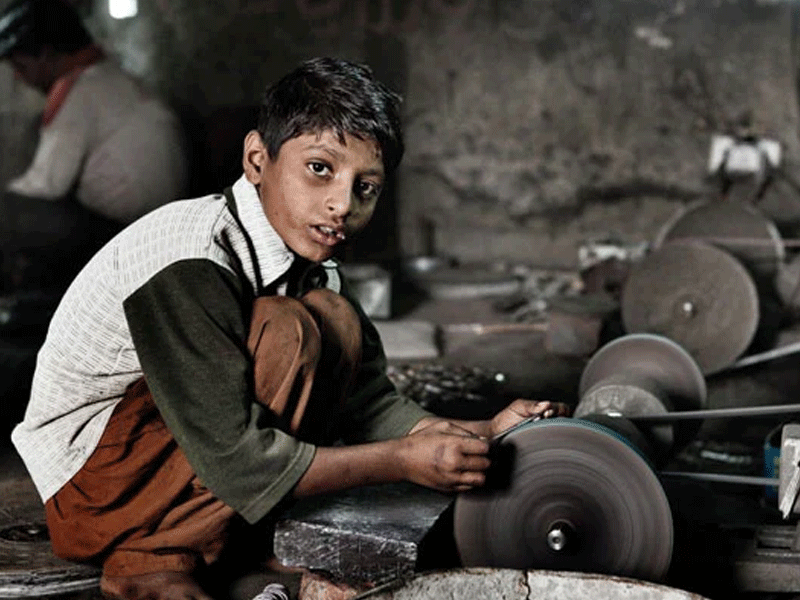Child Labor - A Menace to the Future of Societies

- 491
- 0
Jinnah University for Women (Business Administration Class) Throughout history, child labor has been a part of all developing and developed nations. It is simply defined as work done by children at an early age.
However, such kind of labor is not deemed progressive, mainly because pushing a child to work at an age when they require mental, physical, or moral education can have long-term implications. And Pakistan sets a perfect case study on this subject for the world.
Child Labor in Pakistan As per Pakistan's penal code, it is illegal to work for a child under 14 years of age. But just like other written laws, this law is also buried in the books. According to UNICEF, more than 3.3 million Pakistani children are trapped in labor.
Moreover, around 22.8 million children aging between 5-18 years are deprived of basic education. Thus, it is clear that the rights of children, as ordained by the law, are not protected by the state. Future Implications of Child Labor Given the above facts, it is clear that child labor is a surging issue in Pakistan. But how can child labor impact the future of nations? Let's consider an example.
Suppose there are two children belonging to different family backgrounds. The first one goes to school, acquires professional education, and contributes to the country's economy.
On the other hand, the second one is forced by the circumstances to quit studying and serve tea in a hotel. At a learning age, he listens to people fight and revile each other, he is exposed to abusers, and on his way back home he also witnessed someone stealing a purse.
Which child do you think will become a law-abiding citizen? The first one, in most cases. Because every time a child is put in the labor, he is vulnerable to:
• Remaining unskilled for the rest of his/her life. • Adding up as a youth bulge for the economy, especially for a struggling economy like Pakistan.
• No skills lead to no jobs. Thus, they are destined to live in poverty forever.
• Poverty forces the children to acquire criminal tendencies, which increase the burden on the juvenile justice system.
• Drug abuse, a common outcome of destitution, can put children in a dark pit of loneliness and depression.
After overviewing the economic situation of a country, the first thing required is to strengthen its foundations i.e., the youth. Some possible solutions for child labor are:
• Strict imposition of the child labor laws.
• Incentives for out-of-school children (e.g., stipends so they can support their family while studying).
• Normalizing family planning and birth control so that families do not find it difficult to raise their children.
• The state must fund vocational training programs so that everyone gets an opportunity to acquire skills that will, in turn, boost the economy.
All in all, child labor is a serious threat to a country. If Pakistan continues to brush this issue under the carpet, it will not only impact the life of an individual, but also the future of the whole country.
Published in The Daily National Courier, October, 17 2022
Like Business on Facebook, follow @DailyNCourier on Twitter to stay informed and join in the conversation.

















































